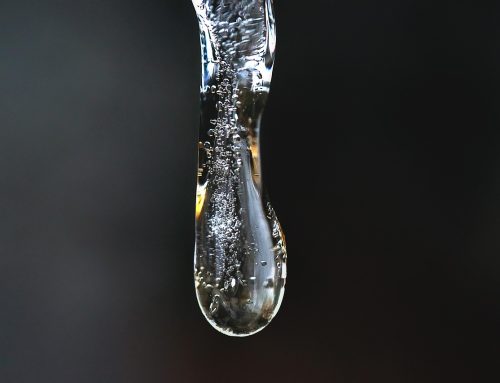A lefolyóból áradó kellemetlen szag nemcsak kellemetlen, hanem komolyabb problémákra is utalhat. A csatornaszag forrása lehet dugulás, kiszáradt bűzzár vagy akár szennyvízszivárgás. Ha nem kezeljük időben a jelenséget, az nemcsak a komfortérzetünket rontja, hanem egészségügyi kockázatokat is jelenthet. Az alábbiakban részletesen bemutatjuk a leggyakoribb okokat és a hatékony megoldásokat.
A csatornaszag lehetséges okai
1. Dugulás a lefolyóban
A lefolyókban felgyülemlett szennyeződések, például hajszálak, zsírlerakódások, ételmaradékok és szappanmaradékok idővel dugulást okozhatnak. Ha a víz lassan folyik le, vagy gurgulázó hangot hallunk a lefolyóból, az intő jel lehet.
Megoldás:
- Próbáljuk meg házilag megszüntetni a dugulást forró víz és természetes tisztítószerek, például szódabikarbóna és ecet keverékének használatával.
- Ha a probléma makacs, akkor lefolyótisztító vegyszereket is bevethetünk, de ezek rendszeres használata nem ajánlott, mert károsíthatja a csöveket.
- Mechanikus tisztításként érdemes lefolyópumpát vagy csőgörényt alkalmazni.
- Súlyosabb esetben szakember segítségére lehet szükség, aki professzionális eszközökkel eltávolítja a dugulást.
2. Kiszáradt bűzzár (szifon)
A bűzzár, más néven szifon, egy olyan vízzel teli hajlított csőszakasz, amely megakadályozza, hogy a csatornából kellemetlen szagok visszajussanak a lakásba. Ha egy lefolyót ritkán használunk, például egy vendégszobai mosdót vagy padlóösszefolyót, akkor a víz elpárologhat belőle, és szabad utat enged a csatornaszagoknak.
Megoldás:
- Ha egy lefolyót ritkán használunk, időnként öntsünk bele egy pohár vizet, hogy a bűzzár feltöltődjön.
- Ha hosszabb időre elutazunk, érdemes pár csepp étolajat vagy glicerint önteni a lefolyóba, mert ezek lelassítják a víz elpárolgását.
- Ellenőrizzük a szifont, és ha repedt vagy sérült, cseréljük ki egy újra.
3. Baktériumok és lerakódások a lefolyó belső falán
A lefolyók belsejében idővel biofilm alakulhat ki, amely baktériumokból és szerves anyagokból áll. Ezek az elszaporodott mikroorganizmusok kellemetlen szagokat termelhetnek.
Megoldás:
- Rendszeresen tisztítsuk a lefolyót forró vízzel és természetes szerekkel, például ecettel és szódabikarbónával.
- Használhatunk fertőtlenítő hatású lefolyótisztító tablettákat vagy folyadékokat is.
- Ha a szag továbbra is fennáll, érdemes szétszerelni és megtisztítani a szifont.
A szennyvízszivárgás egészségügyi kockázatai
Ha a csatornaszag tartósan fennáll, annak oka akár szennyvízszivárgás is lehet. Ez nemcsak bűzt okoz, hanem komoly egészségügyi kockázatokat is hordoz:
- A szennyvízben található baktériumok és penészgombák légúti betegségeket, allergiát és egyéb fertőzéseket okozhatnak.
- A nedves környezet ideális táptalaj a kártevők, például csótányok vagy patkányok számára, amelyek további fertőzésveszélyt jelentenek.
- Hosszú távon a szennyvízszivárgás az épület szerkezetét is károsíthatja, ami jelentős javítási költségekkel járhat.
Ha a kellemetlen szag mellett nedves foltokat, dohos szagot vagy penészedést tapasztalunk a falakon vagy a padlón, az szivárgásra utalhat, és azonnali beavatkozást igényel.
Csatornaszivárgás felderítése szakember segítségével
A rejtett csatornaszivárgások az épületben súlyos károkat okozhatnak, ezért érdemes szakemberhez fordulni. A profi duguláselhárítók és vízvezeték-szerelők modern eszközökkel pontosan be tudják azonosítani a szivárgás helyét, anélkül, hogy felesleges bontási munkákat kellene végezni.
Szivárgás felderítési módszerek:
- Camera pipe inspection: Egy apró, nagy felbontású kamerával felszerelt csővizsgáló eszközt vezetnek a lefolyórendszerbe, amely élő képet közvetít a cső állapotáról. Ez segít megtalálni a töréseket, repedéseket és dugulásokat.
- Nyomáspróba: A rendszerbe levegőt vagy vizet juttatnak, hogy észleljék, hol távozik a folyadék, és így meghatározzák a szivárgás pontos helyét.
- Hőkamerás vizsgálat: Az infravörös technológia lehetővé teszi a csövek mögötti hőmérsékletkülönbségek feltérképezését, így a szakember könnyen megtalálhatja a problémás területeket.
Summary
Ha kellemetlen szagot érzünk a lefolyóból, ne halogassuk a probléma megoldását! A dugulások, baktériumok és kiszáradt bűzzárak egyszerű karbantartással kezelhetők, de a szennyvízszivárgás komolyabb gondokat okozhat.
Ne hagyja, hogy a csatornaszag tönkretegye otthona komfortját!
Ha tartós csatornaszagot tapasztal, vagy gyanítja, hogy szennyvízszivárgás áll a háttérben, ne halogassa a megoldást! Profi szakembereink modern kamerás csővizsgálattal és precíz szivárgásfelderítéssel gyorsan és hatékonyan feltárják a problémát – felesleges bontás nélkül.
Call me us még ma, és szüntesse meg végleg a kellemetlen szagokat otthonában!









